- REMEMBRANCE FLAG
- See ‘memorial flag 2)’.

9/11 Remembrance/Memorial Flag, US (Dave Martucci)
- REPEATER (or REPEATER PENNANT)
- See ‘substitute’.

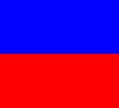

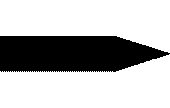
B-E-L-L (Bravo-Echo-Lima-Lima) in The ICS using the Third Repeater/Substitute Pennant
- REPEATING FRIGATES
- The 18th/19th Century term, now obsolete, for those frigates that were stationed outside or behind the
main line in a fleet of sailing or steam-assisted warships in order to relay flag signals to ships out of view of the
flagship (see also ‘flagship’, ‘man-o-war’
and ‘signal flag’).
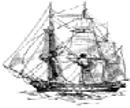
Please note that in the context of the above definition a
frigate was a naval vessel which carried her main armament of 28 – 50 long-guns on a single, part-enclosed deck.
- REPLICA FLAG (or REPRODUCTION)
- A term which may be used to describe that flag which is a visual or actual reproduction of an
earlier design – a reproduction (see also
‘fictitious flag’ and
‘flag of pretence 1)’).

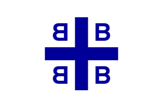
A rejected design of 1919 (for a Flag of the RAF) flown as a Replica in 2010; Reproduction of the Standard of
Constantine the Great c323 (fotw)
(fotw)
- RESERVE ENSIGN
- See under ‘ensign’.
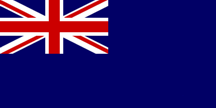

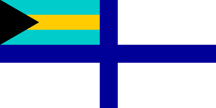
Reserve Ensign of the UK (fotw); Reserve Ensign of
Sri Lanka (fotw); Reserve Ensign of The Bahamas (fotw)
- RESPECTANT
- See ‘appendix V’

Arms of Michigan, US (ICH)
- RETREAT CEREMONY
- In military usage, a formal ceremony requiring a full guard and band for lowering
the national flag at the end of the day on special occasions (see also
‘reveille’ and
‘sunset’).
Please note that this ceremony has its roots in
late Medieval and early Renaissance period with the formal ceremonies associated
with closing the gates of fortresses and castles for the night.
- REVEILLE
- In UK, US and some other military usage, the ceremony of hoisting the national
flag at the start of a day and taken from the name of the bugle call sounded to
awaken the troops (see also 'colours 5)' and
'retreat ceremony').
- REVERSE
- The less important side of a flag that is generally, but not invariably, a
mirror image of the obverse. A distinctive reverse design or charge will
usually only be found on unique flags, ceremonial flags, regimental colours
and similar, there are however, occasional exceptions - see
'double-sided 1)' and
'two-sided 1)'.(also
‘ceremonial flag 1)’.
‘colour 2)’,
‘obverse’,
‘right hoisted’,
and ‘unique flag’).
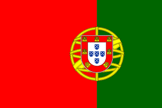
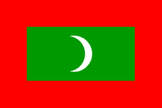
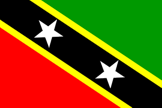
Reverse of the National Flag of Portugal (fotw);
Reverse of the National Flag of The Maldives (fotw);
Reverse of the National Flag of St Kitts and Nevis (fotw)
- REVERSE BEND
- See ‘bend sinister’
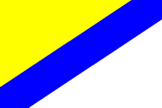
Flag of Monfarracinos, Spain (fotw)
- REVERSED
- 1) On flags, the term is used to refer to a charge or charges that run in the opposite
direction to that in which they are normally placed (see also
‘reversed chevron’,
‘reversed pall’, ‘reversed pile’
and ‘reversed triangle’).
- 2) In heraldry, as above but the term is also used when arms or a charge are reversed or turned downward
– debased, everted, inverted, subverted, subvertant or transposed.

- REVERSED CHEVRON
- See ‘chevron 1)’ and
‘chevron 2)’.
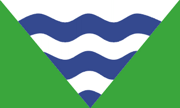
Flag of Birżebbuġa, Malta (fotw)
- REVERSED PALL
- See 'pall 1)'.
![[reversed pall]](../images/v/vxt-d492.gif)
Flag of Krasnoarmeyskiy, Russia (fotw)
- REVERSED PILE
- See ‘pile 1)’.
![[reveresed pile]](../images/v/vxt-d491.gif)
Flag of Paszowice, Poland (fotw)
- REVERSED TRIANGLE
- See ‘triangle’.
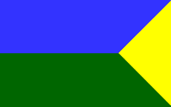
Flag of Łomża rural district,
Poland
- RHOMBUS
- See ‘lozenge 1)’.

- RIBBON
- 1) See ‘scroll’ (also ‘ribbon scroll 2)’).
2) See ‘cravat 2)’ and ‘draping’.
3) A term that is also (and inaccurately) used to describe a wavy stripe – see ‘wavy’.
- RIBBON SCROLL
- 1) Generically, see ‘scroll’.
- 2) Specifically, the term used for a narrow ribbon in the form of a scroll but of
greater length than is usual); it is normally (but not exclusively) placed below and/or
around the shield in a set of armorial bearings or an emblem, and is generally inscribed
with a motto – a ribbon – for example, those on the flags of the US states of Iowa and
of Massachusetts
(see also ‘scroll’).


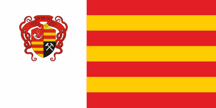
Flag of the State of Iowa, US; Flag of the State of
Massachusetts, US (fotw); Flag of
Dorog, Hungary (Zoltan Horvath)
- RIGHT DIAGONAL (or RIGHT DIAGONAL BAR)
- See ‘bend’ and ‘descending diagonal 1)’.
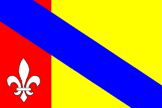

Flag and Arms of Waaxens, The Netherlands (fotw)
- RIGHT-HOISTED
- A term that may be used (in place of its heraldic equivalent) when the obverse of a
flag is depicted (or is manufactured) with its hoist to the observer’s right in accordance
with Arabic tradition – but see
‘sinister hoist’ and the note below (also
‘hoist 1)’, ‘obverse’
and ‘reverse’).
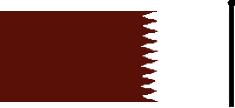
National Flag of Qatar (fotw)
Please note that the Editors recommend use of the heraldic term as being more
accurate and will avoid any potential confusion.
- RIKSBANNER (or RIJKSVAANDEL)
- See ‘coronation flags’.
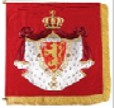
Riksbanner/coronation Flag, Norway 1906 (Official Website)
- RING
- 1) On flags a charge in the form of a narrow circular band typically (but by no means exclusively) used to separate
a sun’s central disc from its rays, as in the flags of Macedonia and Taiwan - a torus or disc/disk voided (see
also ‘disc’ and
‘cartouche’).
- 2) In heraldry see ‘annulet’.
- 3) A piece of wood or metal for attaching a windsock to its pole and for keeping
it open (see also ‘windsock’).
- 4) See ‘battalion ring’ and
‘battle honour’.
- 5) One of a number of circular metal bands used as an increasingly (but
not entirely) obsolete method of attaching a military colour, parade flag or
gonfalon to its staff - see ‘colour 2)’,
‘parade flag 2)’ with its following
notes and ‘gonfalon 2)’
(also ‘loops’ and
‘ties’).

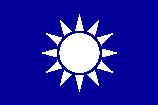
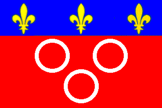
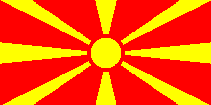
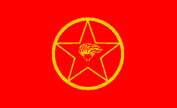
Ring; Naval Jack of Taiwan (fotw); Flag of Mâcon, France (fotw); National Flag of
Macedonia (fotw); Flag of the Kurdish Workers Party, Turkey (fotw)
- RISING
- See ‘appendix V’.
![[rising example]](../images/v/vxt-d1249a.gif)
![[rising example]](../images/v/vxt-d1249b.gif)
Arms and Flag of Złocieniec, Poland (fotw)
- RISING DIAGONAL
- See ‘ascending diagonal’.
![[rising diagonal example]](../images/v/vxt-d653.gif)
Flag of Franekeradeel, Netherlands (fotw)
- RIVERWHEEL (or RIVERMILL WHEEL)
- See ‘waterwheel’.
![[Fafe, Portugal]](../images/v/vxt-d2647a.gif)
![[Fafe, Portugal]](../images/v/vxt-d2647.gif)
Flag of Fafe, Portugal (fotw)
















![[reversed pall]](../images/v/vxt-d492.gif)
![[reveresed pile]](../images/v/vxt-d491.gif)












![[rising example]](../images/v/vxt-d1249a.gif)
![[rising example]](../images/v/vxt-d1249b.gif)
![[rising diagonal example]](../images/v/vxt-d653.gif)
![[Fafe, Portugal]](../images/v/vxt-d2647a.gif)
![[Fafe, Portugal]](../images/v/vxt-d2647.gif)




